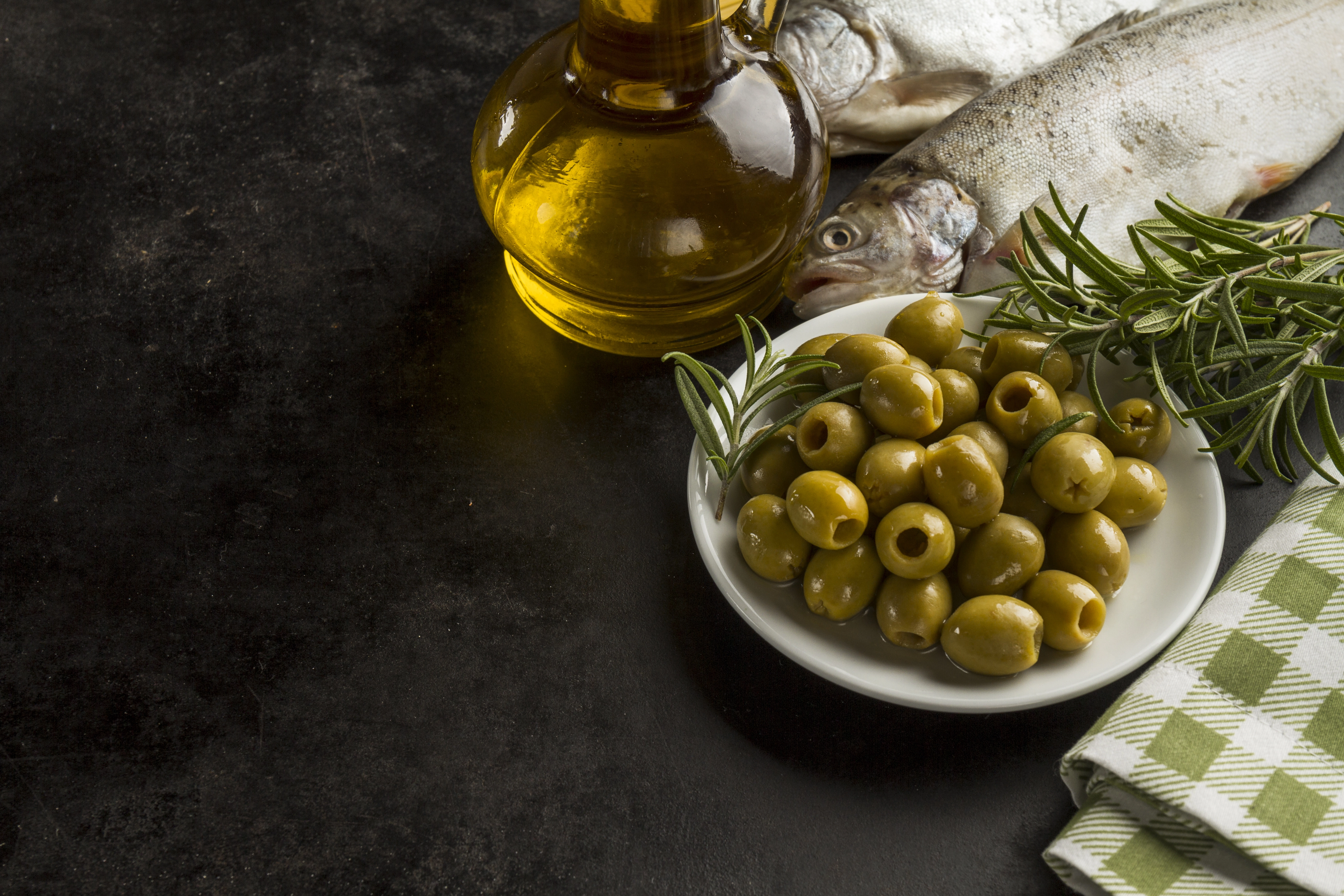FAQ
Frequently Asked Questions
Extra virgin olive oil (EVOO) is made from the first cold pressing of olives and has no defects in taste. It has a low level of acidity (less than 0.8%) and is considered the highest quality.
Regular olive oil is often a blend of refined olive oil and some EVOO. It has a more neutral taste and higher acidity, making it less ideal for raw consumption but good for cooking at higher temperatures.
Olive oil should be stored in a cool, dark place away from direct sunlight and heat. A pantry or cupboard is ideal. It should also be kept tightly sealed in its original bottle to preserve its flavor and nutrients.
Olive oil typically lasts about 18-24 months from the date of harvest if stored properly. It's best to use it within a year or so of opening to enjoy its full flavor and health benefits. Look for a "best by" date on the bottle.
Yes, olive oil can go rancid if exposed to air, light, and heat for prolonged periods. Rancid oil has a stale, unpleasant smell and taste. Always check for signs of spoilage, and use it before it turns bad.
Olive oil is rich in monounsaturated fats, antioxidants, and anti-inflammatory compounds. It has been linked to heart health, improved cholesterol levels, reduced risk of stroke, and better blood sugar control. It also helps with skin health and weight management when consumed in moderation.
Extra virgin olive oil has a moderate smoke point (about 375–410°F or 190–210°C), which makes it suitable for most cooking methods, including sautéing and roasting. However, for deep-frying or grilling at very high temperatures, a more refined olive oil or other oils like avocado oil might be a better choice.
The best olive oil for cooking depends on the method you're using. EVOO is great for dressings, dips, and low to medium-heat cooking. For high-heat applications, you might want to opt for pure or light olive oil, which has a higher smoke point.
While olive oil is calorie-dense, it can aid in weight loss when consumed in moderation as part of a balanced diet. Its monounsaturated fats can help with satiety and reduce overall calorie intake by improving fat metabolism.
Authentic olive oil is often certified by quality seals like PDO (Protected Designation of Origin) or PGI (Protected Geographical Indication). It should have a fresh, fruity aroma and a slightly bitter or peppery taste. Some fake olive oils may be diluted with cheaper oils or lack these qualities.
The bitterness and pepperiness in olive oil come from polyphenols, which are antioxidants found in olives. These compounds have health benefits and contribute to the oil's distinctive flavor. Fresh, high-quality extra virgin olive oils often have this characteristic.
Both terms refer to the process of obtaining olive oil without using heat, but "cold-extracted" is a more modern term. "Cold-pressed" refers to the traditional method of extracting oil using mechanical presses, while "cold-extracted" might refer to more advanced methods of extraction like centrifugation but still without using heat.
To properly taste olive oil, pour a small amount into a glass or tasting spoon, then warm it slightly in your hands to release the aromas. Swirl the oil and take a small sip. You should look for flavors such as fruity, grassy, bitter, or peppery.
Yes, olive oil is widely used in skincare due to its moisturizing properties, antioxidants, and vitamin E content. It can be applied topically to hydrate dry skin, reduce the appearance of scars, and protect against environmental damage.
What Should Be Considered While Buying The Olive Oil And How Should We Store It?
When buying olive oil and deciding how to store it, there are several factors to keep in mind to ensure you get the best quality oil and preserve its freshness and flavor. Here are the key considerations:
What to Consider When Buying Olive Oil
|
How to Store Olive Oil
|

